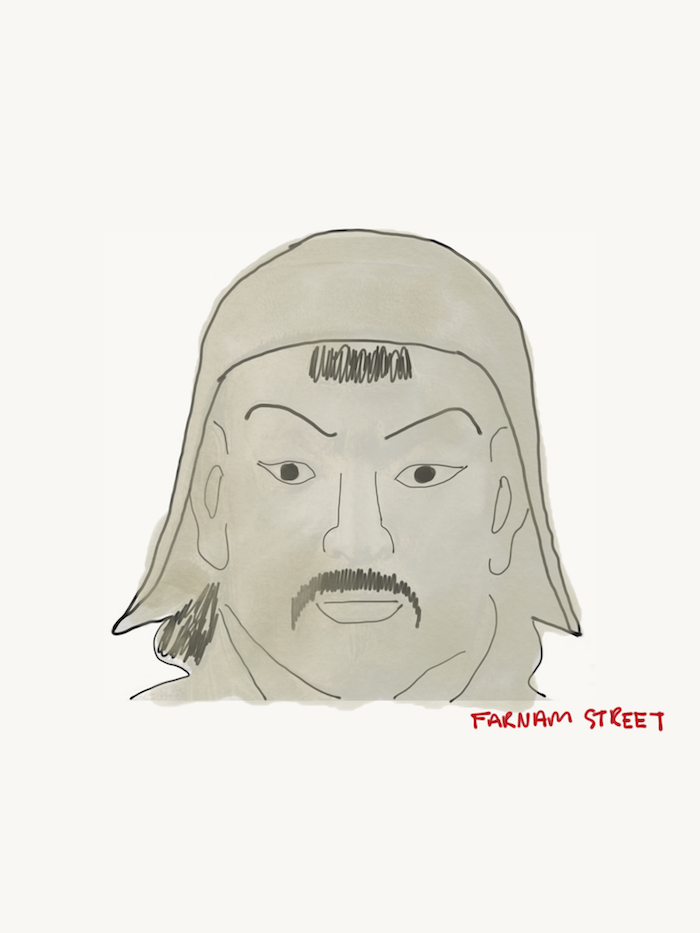Ego Is the Enemy: The Legend of Genghis Khan §

Highlights §
- Under Genghis Khan’s direction, the Mongols were as ruthless about stealing and absorbing the best of each culture they encountered as they were about conquest itself. (View Highlight)
- Genghis Khan was not born a genius. Instead, as one biographer put it, his was “a persistent cycle of pragmatic learning, experimental adaptation, and constant revision driven by his uniquely disciplined and focused will.” (View Highlight)
- He was the greatest conqueror the world ever knew because he was more open to learning than any other conqueror has ever been. (View Highlight)
- In his campaigns against the Jurched, Khan learned the importance of winning hearts and minds. By working with the scholars and royal family of the lands he conquered, Khan was able to hold on to and manage these territories in ways that most empires could not. (View Highlight)
- The Mongol Empire was remarkable for its religious freedoms, and most of all, for its love of ideas and convergence of cultures. (View Highlight)
- As we first succeed, we will find ourselves in new situations, facing new problems. The freshly promoted soldier must learn the art of politics. The salesman, how to manage. The founder, how to delegate. The writer, how to edit others. The comedian, how to act. (View Highlight)
- as our island of knowledge grows, so does the shore of our ignorance.” In other words, each victory and advancement that made Khan smarter also bumped him against new situations he’d never encountered before. (View Highlight)
- With accomplishment comes a growing pressure to pretend that we know more than we do. To pretend we already know everything. Scientia infla (knowledge puffs up). (View Highlight)
- At every step and every juncture in life, there is the opportunity to learn—and even if the lesson is purely remedial, we must not let ego block us from hearing it again. (View Highlight)
- An amateur is defensive. The professional finds learning (and even, occasionally, being shown up) to be enjoyable; they like being challenged and humbled, and engage in education as an ongoing and endless process. (View Highlight)
- the theory of disruption, which posits that at some point in time, every industry will be disrupted by some trend or innovation that, despite all the resources in the world, the incumbent interests will be incapable of responding to. (View Highlight)
- Peter Drucker says that it’s not enough simply to want to learn. As people progress, they must also understand how they learn and then set up processes to facilitate this continual education. (View Highlight)
